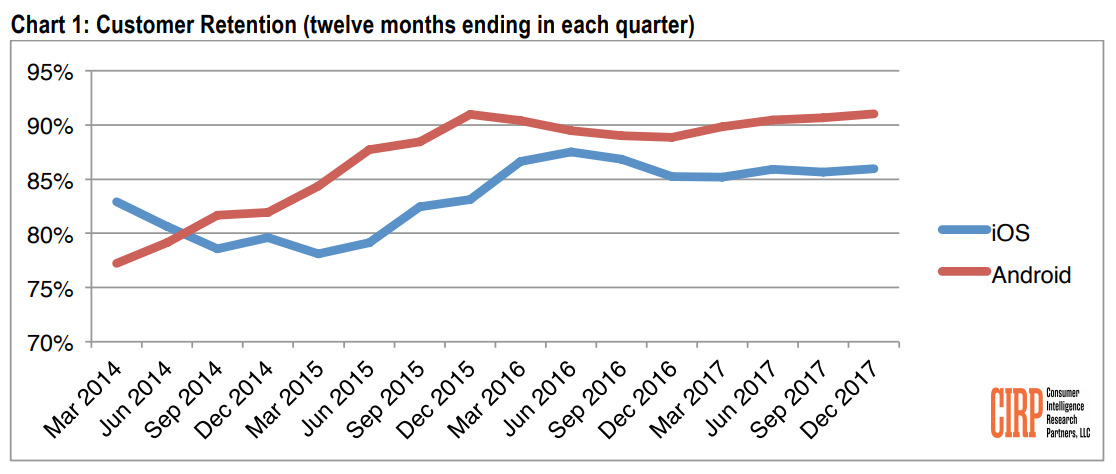Forget The Sheeple: Android Fans Are Actually The Most Loyal
Whether you're talking to industry analysts or lowly bloggers, the general assumption is that Apple's fanboys will happily pony up whatever amount of money they're told to every September. No headphone jack? No problem. Killing off the home button? Sure! Apple's users are so wedded to the system that they have no choice but to follow along and just keep upgrading their iPhone, so the theory goes.
But in reality, the data suggests otherwise. Consumer Intelligence Research Partners today released the results of their annual mobile phone OS behavior study, and once again, Android users have proven to be the most loyal to their chosen operating system.
CIRP conducts quarterly surveys of 500 users to gauge consumer behavior, particularly "loyalty," or the tendency to stick with the same mobile OS when upgrading. The survey has been running since March 2013, and that long period with a consistent methodology makes the survey particularly valuable for examining trends over time.
What the 2017 data shows is that loyalty to Android and iOS is at an all-time high. Android loyalty was at 89-91%, and iPhone loyalty at 85-88%, according to the data. "Loyalty is also as high as we've ever seen, really from 85-90% at any given point, said Mike Levin, CIRP's co-founder. "With only two mobile operating systems at this point, it appears users now pick one, learn it, invest in apps and storage, and stick with it."
Lock-in is increasingly a problem for users wanting to switch between Android and iOS. App and content libraries are increasingly becoming walled gardens, and with some smart home accessories and smart speakers now reliant on which smartphone you use, making the jump is pricier than ever.
One thing the company did note is that while Android users are more loyal on a per-capita basis, the raw number of Android users switching to iOS may be higher than the other way around. "We
know Android has a larger base of users than iOS, and because of that larger base, the absolute number of users that switch to iOS from Android is as large or larger than the absolute number of users that switch to Android from iOS. Looking at absolute number of users in this way tends to support claims that iOS gains more former Android users, than Android does former iOS users."
